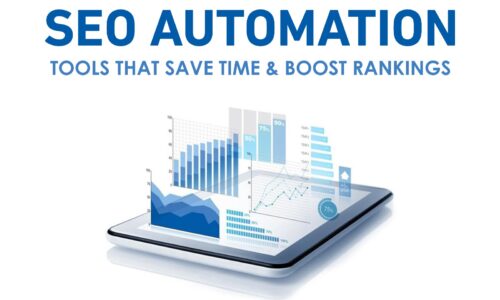
A strong online presence is an important factor. You can run a business, manage a blog, or build a personal brand. With SEO, you can make sure that your content will reach the right audience.
In 2025, SEO strategies will keep coming up. These strategies will feature major advancements and changes in algorithms.
SEO Techniques
SEO is the process of optimizing your website to rank higher on SERPs. This includes various strategies that improve the quality and quantity of traffic to your site.
- On-page – Optimizing elements on your website such as content, meta tags, and internal links.
- Off-page – Building credibility through backlinks and social media engagement.
- Technical – Ensuring a website is fast, mobile-friendly, and well-structured.
AI & SEO
The role of AI aims to improve search engine rankings with respect to the content and how businesses boost their search. Google has certain AI-centric algorithmic updates, including BERT and RankBrain. These updates look into search intent more.
Here is the role of AI in SEO:
1. AI-Powered Content Optimization
Search engines now prioritize high-quality, user-focused content. AI tools help marketers analyze top-ranking content, identify gaps, and optimize existing material. Platforms like Clearscope and Surfer SEO provide AI-driven insights to enhance readability, keyword relevance, and structure.
2. Voice Search and AI
With the rise of voice assistants like Siri and Google Assistant, voice search optimization is becoming increasingly important. AI enables search engines to interpret conversational queries better, meaning businesses should adapt their SEO strategies by including long-tail, question-based keywords.
3. AI-Based Automation
AI helps streamline SEO tasks like keyword research, link building, and performance tracking. Automated tools like SEMrush, Ahrefs, and ChatGPT assist in analyzing data faster, making SEO best practices 2025 more efficient.
On-Page SEO Techniques for 2025
On-page SEO techniques remain fundamental to improving search rankings. While traditional strategies like optimizing titles, descriptions, and URLs are still relevant, newer techniques are shaping the future. Here are some effective methods:
1. Optimizing for User Experience
Google’s algorithm now prioritizes websites that offer an excellent user experience. Factors influencing UX include:
- Page speed – Slow-loading pages increase bounce rates.
- Mobile-friendliness – Google follows a mobile-first indexing approach.
- Easy navigation – A well-structured website enhances user engagement.
2. Content Optimization for SEO
High-quality, engaging content remains at the heart of SEO best practices 2025. Focus on:
- Using AI in SEO tools to generate topic ideas.
- Writing well-structured, informative, and keyword-optimized content.
- Ensuring natural keyword placement without overstuffing.
3. Semantic SEO and Topic Clusters
Search engines now emphasize context rather than just keywords. Instead of individual keywords, focus on SEO trends 2025, such as topic clusters. This involves:
- Creating pillar content around broad topics.
- Interlinking supporting pages with related subtopics.
4. Schema Markup and Structured Data
Adding structured data (Schema Markup) helps search engines understand your content better. This can result in rich snippets, improving CTR. For example:
- FAQ schema for answering common queries.
- Product schema for e-commerce listings.
- Review schema to showcase customer ratings.
SEO Trends 2025: What to Expect
The SEO landscape is constantly evolving. Here are the major SEO trends 2025 you should focus on:
1. Zero-Click Searches
Featured snippets, Google’s Knowledge Graph, and People Also Ask sections lead to more zero-click searches, where users get answers without visiting a website. Optimizing for featured snippets can help capture these opportunities.
2. Video SEO Optimization
Videos are becoming a dominant content format. Search engines prioritize video content, making it essential to optimize YouTube videos with keyword-rich descriptions, captions, and engaging thumbnails.
3. E-A-T
Google evaluates content credibility based on E-A-T principles. Building authority through high-quality content, author bios, and backlinks from reputable sources improves rankings.
4. Hyper-Personalized Search Results
AI-driven search engines provide personalized results based on user behavior, location, and past searches. Businesses must focus on local SEO, long-tail keywords, and intent-based optimization.
Implementing SEO Best Practices 2025
To stay competitive, integrating SEO best practices in 2025 is essential. Here are some key steps:
1. Conduct Regular SEO Audits
Using tools like Google Search Console and Screaming Frog, regularly analyze site performance, identify broken links, and resolve crawl issues.
2. Optimize for Core Web Vitals
Google’s Core Web Vitals measure site performance in speed, interactivity, and visual stability. Improving these metrics boosts rankings and user experience.
3. Focus on Long-Tail Keywords
With AI-driven algorithms becoming more advanced, long-tail keywords with specific user intent are more valuable than ever. Tools like AnswerThePublic help identify user questions.
4. Build Quality Backlinks
Earning backlinks from authoritative sites strengthens domain authority. Guest blogging, digital PR, and influencer collaborations help build quality links.
Conclusion
Mastering SEO is an ongoing process that requires adapting to new trends, technologies, and user behaviors. By understanding SEO best practices 2025, leveraging AI in SEO, and implementing effective on-page SEO techniques, businesses and content creators can enhance their visibility and attract more organic traffic. Keeping up with SEO trends 2025 ensures long-term success in an increasingly competitive digital landscape.
With the right approach, continuous learning, and strategic execution, you can optimize your website for higher search rankings and better engagement. Stay ahead of the curve and prioritize SEO in your digital marketing strategy!





